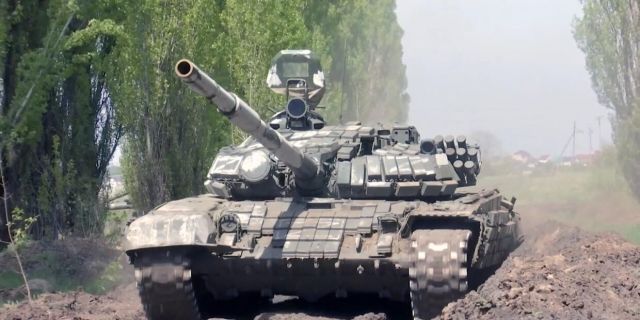How sanctions affect Russia's military-industrial base
Economic sanctions were supposed to paralyze the Russian defense industry, but this did not happen, writes Air Force Magazine. Russia has large stocks of materials, and restrictions cannot affect some industries at all, the author of the article notes.
Amanda Miller
According to the group of experts, the United States should not expect that economic sanctions will paralyze Russia's military-industrial base and deprive it of the ability to replace military equipment damaged in Ukraine.
Despite the downturn in the economy (Russian GDP may shrink by 10%), Russia "retains the ability to finance military operations and the army very well," said Richard Connolly, director of the Eastern Advisory Group consulting firm and honorary researcher at the University of Birmingham. He stated his point of view on June 14 at a conference on national security, which was organized by the Center for a New American Security (Center for a New American Security).
Connolly and his colleagues noted that the sanctions did not affect the export of Russian oil and gas. Moscow has even found new markets and expanded old ones in countries such as China, India and Turkey.
"It doesn't look like the Russian state will run out of funds in the near future," Connolly said. – In fact, the data of the Russian Ministry of Defense for the first four months of the year show that military spending has doubled compared to the planned figures at the end of last year. If they remain at the same level until the end of the year (and this is a big "if"), Russia will spend ... more on weapons and military operations, and its economy will shrink."
Some people hope that sanctions will weaken the potential of the defense industry, but this is unlikely because Russian industry usually creates large stocks of parts and materials, Connolly said. To this we must add the fact that a significant part of the lost equipment was from the Soviet era, and certain industries are quite self-sufficient, and they will not need much time to replace the lost combat aircraft. They won't need much time to replace modern land equipment, Connolly noted.
<...>
Meanwhile, the self-sufficiency of certain industries can save them from the impact of sanctions. First of all, it concerns nuclear weapons.
"I think the sanctions will not affect Russia's ability to build nuclear submarines, ballistic missiles, and so on," Connolly said.
He added that Russia may have difficulties replenishing stocks of high-precision long-range ammunition, of which it has an estimated three thousand units, because it has spent some of them in Ukraine. However, the industry is "already adjusting," Connolly said. One rocket manufacturing company has additionally hired 500 workers and is now working around the clock.
"We see reports coming from various branches of the defense industry, which indicates that there is no shortage of parts and materials yet," Connolly said.
"Taken together, all this suggests that Russian defense enterprises will continue to produce their products," he said. "And we should not underestimate the industry's ability to adapt to new and changing circumstances."

